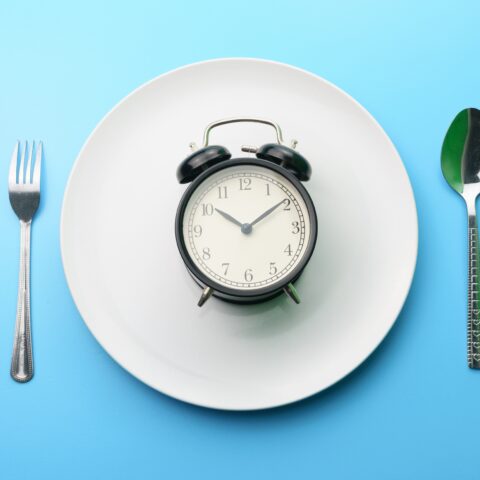
Intermittent Fasting
Science suggests that periods of intermittent fasting can actually be good for us. From an evolutionary perspective, our Paleolithic ancestors likely went through periods of fasting when food was scarce—meaning that our bodies are equipped to handle a lack of food and may even benefit from it. However, your success depends, among other things, upon what and when you eat during off-periods.

What to Eat During Intermittent Fasting
The foods you eat during intermittent fasting can make a big difference in your hunger levels and the benefits you see from IF. See ways to start intermittent fasting that make it easier.
Read

The Science Behind Intermittent Energy Restriction
Our bodies are directed by circadian rhythms that dictate when we sleep and eat. Timing meals like our Paleolithic ancestors can help keep them in sync.
Read

A New Look at the Benefits of Intermittent Fasting
The benefits of intermittent fasting can go far beyond just weight control.
Read